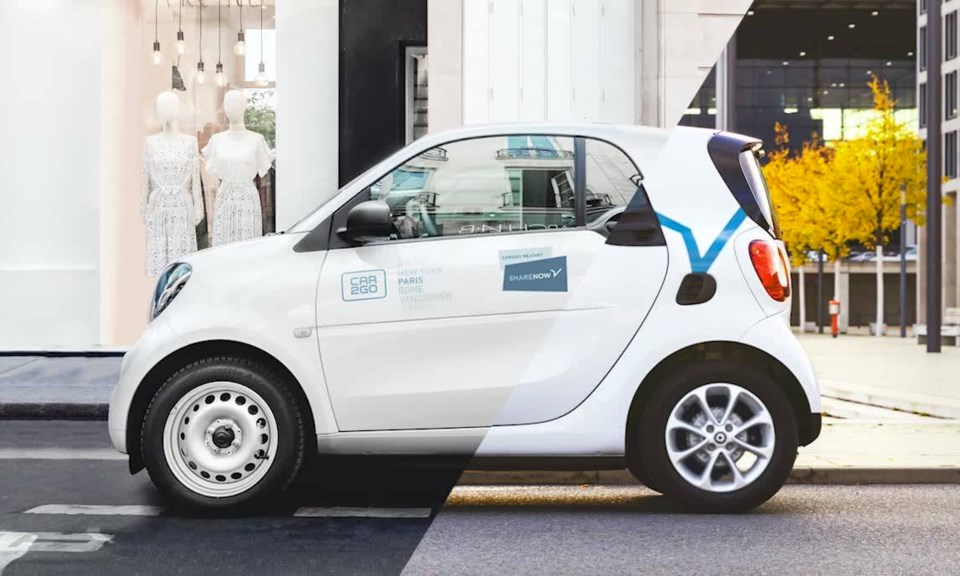Yesterday, Share Now, the company formerly known as Car2go, announced that it would be shutting down service in North America.
A major player in the global car sharing service, the company stated that it would exit the North American market and cease operations in London, Brussels and Florence, effective Feb. 29, 2020. As a result, Vancouver will lose one of its biggest car-sharing services.
Tiffany Young, a Spokesperson for Share Now in North America, told Vancouver Is Awesome in an email that customers will find fewer vehicles on the road before the exit date.
"As we approach our closure date of February 29, customers can expect to find fewer vehicles in the Home Area," wrote Young.
Young also stated that the vehicles in impacted cities will be sold. However, she wouldn't say who will be able to buy them or when they will become available for purchase. With this in mind, she noted that vehicles are not sold directly, or individually.
"Vehicles will not be made available for sale to the general public," Young explained. "What I can tell you is that vehicles in impacted cities will be sold."
Patrick Condon, a Professor at the UBC School of Architecture and Landscape Architecture, told V.I.A. in an email that Share Now's business model was difficult and expensive to make work.
"You needed enough cars to flood the field with them, at great cost, because they had to always be nearby for them to out-compete (for cost and convenience) transit, walking, biking, or cabs," wrote Condon.
"In addition you needed a city pattern, like many European cities have and we don't, of vast areas of medium density residential with a highly granular pattern of job sites and commercial sites mixed in with that residential density."
Condon used a personal anecdote to convey his thoughts, noting how he has used Car2go to get to UBC in the past. He mentions that if he didn't get a car by 8 a.m., all of them were gone. Likewise, in order to get home, he had to have one by 4 p.m. After that, he says that they were also usually gone.
"So these cars were likely only being used for two trips a day and frustrated a lot of would be users like me," explains Condon.
"Eventually I gave up trying."
Condon added that the situation makes it easier for ride-hailing companies such as Uber and Lyft that don't have the built-in problems of limited utility.
Moving forward, Share Now plans to focus on its remaining European cities which it, along its shareholders, believe show the greatest potential for profitable growth and mobility innovation. The company will focus on the 18 European cities where it will continue to operate.



